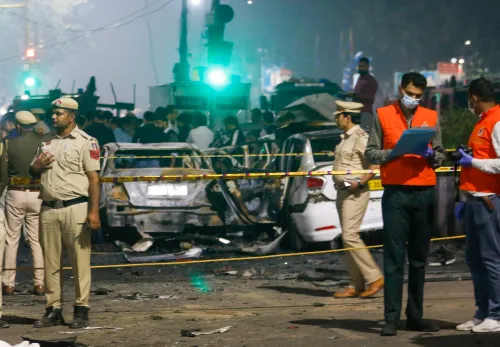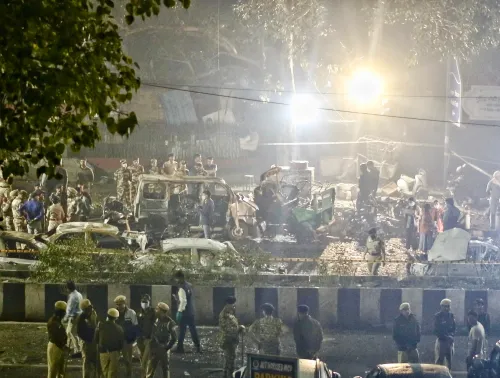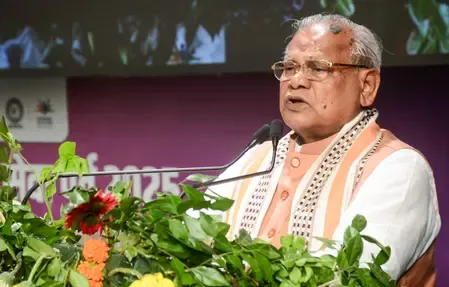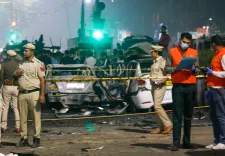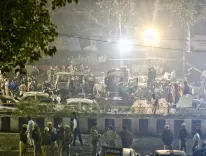Will India Treat Future Terror Strikes as an 'Act of War'?
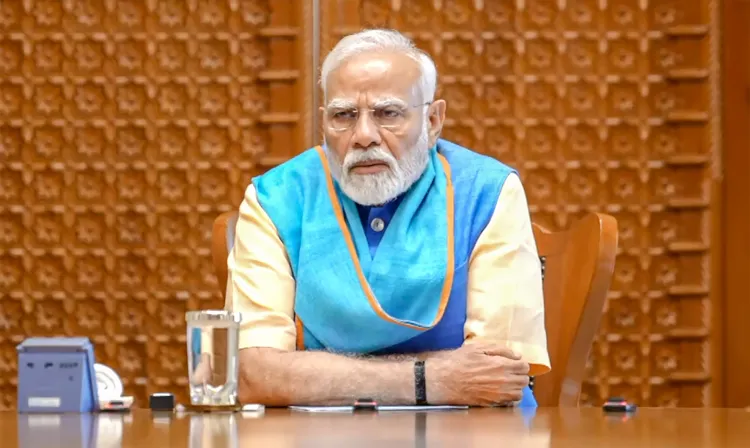
Synopsis
Key Takeaways
- India now officially considers future terror attacks as 'Acts of War'.
- This decision reflects a strong stance against terrorism.
- It serves as a warning to Pakistan regarding support for terrorist activities.
- Operation Sindoor continues as a key anti-terror initiative.
- Historical parallels are drawn from Israel's response to past terrorist acts.
New Delhi, May 10 (NationPress) India has officially announced that any future terrorist acts will be regarded as an ‘Act of War’ against the nation, leading to a decisive response. This strategic move aligns perfectly with the Narendra Modi administration’s commitment to zero tolerance for terrorism, as confirmed by official sources on Saturday.
This decision serves as a stern warning to Pakistan, signaling that any support for terrorism could lead to retaliatory actions reminiscent of ‘Operation Sindoor’ in the event of any aggressive moves in the future.
During a meeting held earlier today, Prime Minister Modi strongly advocated for classifying all future terror incidents as ‘Acts of War’, a sentiment shared by senior military officials and Defence Minister Rajnath Singh.
Attendees included National Security Advisor Ajit Doval, Chief of Defence Staff General Anil Chauhan, the heads of the three military branches, and the leaders of the Intelligence Bureau (IB) and Research and Analysis Wing (RAW), who gathered to evaluate the outcomes of the anti-terror initiative, Operation Sindoor, amid ongoing tensions with Pakistan.
Both the IB and RAW leaders provided insights into the terrorists neutralized during ‘Operation Sindoor’, including those involved in the notorious IC-814 flight hijacking in 1999.
Interestingly, the Council of Europe’s human rights manual equates Acts of War with terrorism, noting their similarities in violence and motivation.
The COE’s Manual for Human Rights Education highlights that “war and terrorism share commonalities, involving extreme violence driven by political or ideological motives, impacting innocent populations severely.”
In related news, prominent global security expert Michael Rubin advised India to adopt a more assertive stance against terrorism, drawing parallels with Israel’s approach in its ongoing fight against terror.
He emphasized the need for India to persist with Operation Sindoor to counter Pakistan’s provocations along its borders. Referencing the historical context, he suggested that PM Modi could learn from former Israeli Prime Minister Golda Meir’s decisive actions following the 1972 Munich Olympic Games massacre.
Rubin recounted how Israel systematically pursued the terrorists responsible for the Munich attack over several years, emphasizing their commitment to justice.
The 1972 Munich massacre involved a terrorist attack targeting the Israeli Olympic team, resulting in the deaths of 11 athletes. This tragic event led to Israel’s vow to eliminate those responsible, culminating in extensive covert operations that lasted over seven years.

